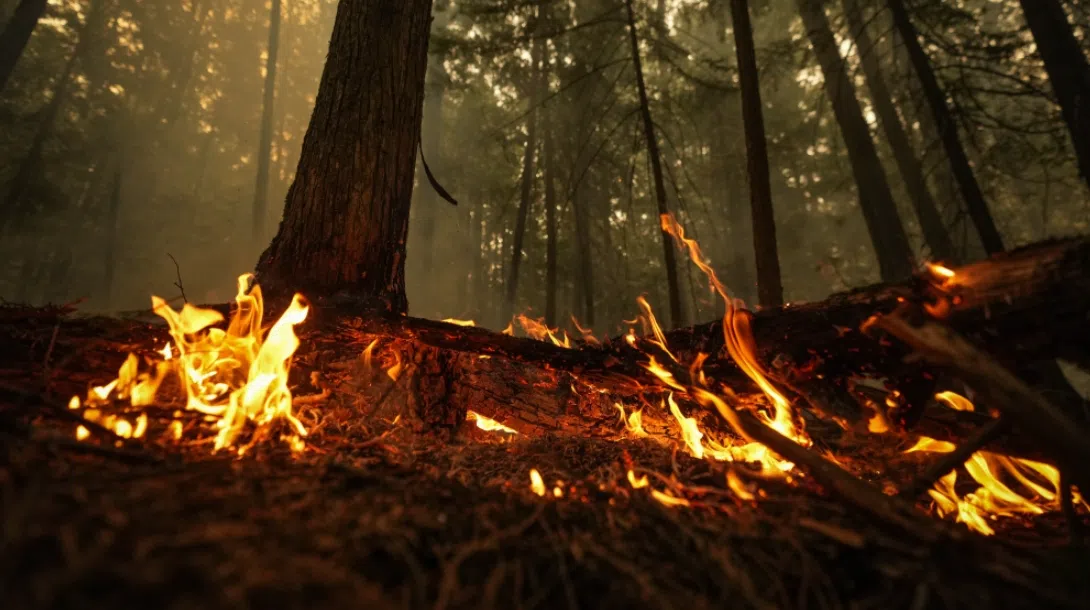
A hot spot from the Lower East Adams Lake wildfire burns in Scotch Creek on Aug. 20, 2023. (Photo via Darryl Dyck/The Canadian Press)
Canada’s Minister of Emergency Preparedness says concerns are high for the upcoming wildfire season.
Given last year’s record-breaking wildfire season and the mild and dry temperatures predicted to continue into the long-term forecast, Minister Harjit Sajjan says he is “very concerned” about where the wildfire season will go and the potential impact it will have on the country.
“Nonetheless, just like last year, we were able to coordinate the appropriate support,” he said “More importantly, we’ve taken the lessons learned from last year and are going to apply it to this year and we’re already making the adjustments now.”
Speaking on NL Mornings, Sajjan says coordination between the federal, provincial, and municipal levels will be key in improving the wildfire response across the country.
“It sounds like a simple thing to do, but just imagine that coordination is just making sure you can communicate with the right people very quickly and what I always find is that municipal and provincial coordination is crucial to get the analysis of what type of support need to be provided,” he said.
“Then making sure at the higher levels, as you’re monitoring the situation at the local level, you’re able to get the resources ready – rather than waiting for it to get the request; and we are doing that to the federal level, it is what we were doing last year, and we need to get better at that.”
Additionally, Sajjan says its also crucial they have more resources, such as boots on the ground, to respond to the fires.
He says the longer-term focus is preventing the spread of wildfires through the Fire Smart Program.
“The fire SMART program had a significant positive impact with the West Kelowna fire. I visited the area fairly quickly with the Premier during that time and you can see homes that used the Fire Smart program were protected,” said Sajjan.
While he says communities are starting to increase the Fire Smart Program, he suggests they want to look at it at the Federal level.
“One of the things that I like to do is get the analysis done of what type of Fire Smart program is needed across the country. Each province is going to be very unique, especially when it comes to the Northwest Territories are up in the high north,”
“Putting those measures in place will allow us to not only be more responsive, but more importantly, be focused on the prevention side as well.”
Sajjan’s comments come, following comments from Thompson Rivers University Wildfire Expert, Mike Flannigan who rated his concern for the spring wildfire season at a nine out of 10.
















